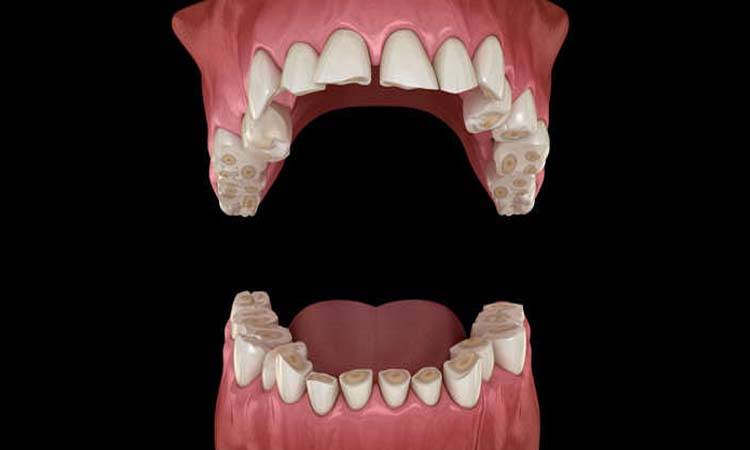
Researchers have recently found that children from wealthy backgrounds are more prone to tooth wear than lower socioeconomic backgrounds.
Sheema Entezami, lead author of the research, and colleagues conducted a global study of 30 countries. They found that individuals who attend private schools or have a high family income have been more susceptible to wearing down their teeth than those from lower socioeconomic areas.
Read more: Children of wealthy families are more prone to tooth wear - study
According to Dr Khaled E. Ahmed, Senior lecturer, Department of Prosthodontics, School of Medicine and Dentistry, Griffith University, Australia, the study was the first comprehensive review investigating the link between tooth wear and socioeconomic status globally.
Here, Dr Khaled tells us more about the origins of tooth wear, what you can expect, and why you should be careful about the food intake to protect your teeth.
Dental News: After conducting the research, what do you think are the most common intrinsic and extrinsic factors causing tooth wear in people of different origins?
Dr Khaled: Tooth wear is a condition that is caused by an acidic element (erosion against tooth surface) or mechanical one (tooth versus tooth - attrition through grinding and clenching teeth; foreign object against tooth surface - abrasion through improper brushing or excessive use of whitening/polishing toothpaste). The most detrimental of them is erosion, which can cause an exponential increase in the wearing down of the acid-softened tooth surface. The primary sources for this acid are either an external one through diet (excessive and sustained consumption of fizzy drinks, citrus fruit/fruit juices/teas, sour foods) or an internal one through gastric reflux, frequent heartburn, hiatus hernia, eating disorders, etc. That said, a significant percentage of tooth wear have can present with all three forms of tooth wear; e.g., a patient suffers from acidic reflux during the night, which softens their dental enamel; they may also grind their teeth while sleeping; wake up and have a glass of orange juice with their breakfast, then immediately brush their teeth with a stiff bristle toothbrush and whitening toothpaste - within a few hours, the dentition has sustained a cycle of acidic attack followed by a mechanical one. If this continues over several years without proper diagnosis and management, the result will be significant tooth surface loss and irreversible damage to the dentition.
Dental News: Do you recommend fluoride or remineralising therapy as a treatment of tooth wear?
Dr Khaled: Fluoride, both professionally applied or at home through high-fluoride toothpaste, can offer valuable dental protection against tooth wear and dental caries. It also can minimise some of the side effects of tooth wear, such as sensitivity. That said, management of tooth wear is greatly dependent on the proper diagnosis of the underlying cause. Hence, fluoride alone may not be enough to address the identified cause related to diet, medical/mental condition, and improper oral hygiene practices.
Dental News: How do you think a dentist should address the issue of tooth wear in patients?
Dr Khaled: Screening, early diagnosis, and appropriate management. Dentists need to identify the leading cause of tooth wear and address it. If the tooth wear presents as dental erosion caused by a severe medical condition such as gastroesophageal reflux disorder, the patient can be referred to their GP for management. Similarly, suppose the underlying cause is attrition as a result of grinding and clenching. In that case, the patient should be made aware of how their stress/anxiety/depression manifests dentally and possibly advised to see professional help through their GP/clinical psychologist, etc. This identification of the underlying cause is critical for the patient's overall medical and mental health.
Dental News: How do you score the awareness among people of different countries regarding tooth wear?
Dr Khaled: There has been increasing awareness of tooth wear internationally in the past few years. The studies included in our published review are from 30 countries worldwide and spread across all incomes. While awareness might be increasing, early diagnosis is essential to avoid the detrimental and irreversible impact of tooth wear.
Dental News: What measures do you think at a global level is needed to prevent tooth wear?
Dr Khaled: Increased public awareness through targeted health initiatives (such as announcements, campaigns, incentives) and behavioural changes amongst individuals (seeking routine dental care when possible, healthier diet, mental health awareness) and healthcare providers (early screening, appropriate management, and patient education).

Dr Hiba Shams
The author is an Assistant Editor at Dental News Pakistan and can be reached at hiba@medicalnewsgroup.com.pk

